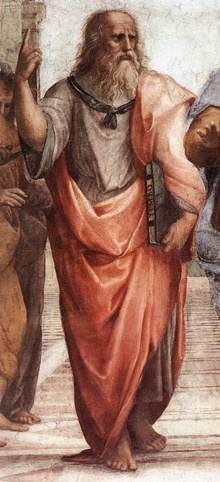The Laws is Plato’s last book. Its dialogue is set in Crete and led by an Athenian who is never identified. He converses with a citizen from Sparta and a politician from Crete. The politician has been given the authority to create laws for a new colony, so he asks the Athenian for advice, and the long dialogue is an exploration of religion, philosophy, and the education of children as they bear upon politics.

Here is an excerpt from Book 7 on why the State should regulate the games children play in order to train them to become adults who will follow the laws consistently and without introducing changes. The Athenian Stranger says to Clinias the Cretan:
“I assert that there exists in every State a complete ignorance about children’s games — how that they are of decisive importance for legislation, as determining whether the laws enacted are to be permanent or not. For when the program of games is prescribed and secures that the same children always play the same games and delight in the same toys in the same way and under the same conditions, it allows the real and serious laws also to remain undisturbed.”
The Stranger continues:
“But when these games vary and suffer innovations, amongst other constant alterations the children are always shifting their fancy from one game to another, so that neither in respect of their own bodily gestures nor in respect of their equipment have they any fixed and acknowledged standard of propriety and impropriety; but the man they hold in special honor is he who is always innovating or introducing some novel device in the matter of form or color or something of the sort; whereas it would be perfectly true to say that a State can have no worse pest than a man of that description, since he privily alters the characters of the young, and causes them to contemn what is old and esteem what is new. And I repeat again that there is no greater mischief a State can suffer than such a dictum and doctrine: just listen while I tell you how great an evil it is.”
Beware the innovator and the experimenter. He is the State’s worst enemy.
To the extent that the Stranger speaks for Plato, we get a model of education that endorses these top goals: Children must learn (1) rule-following, (2) to follow rules made by others and (3) made by others in the past, and (4) not to think of trying to change things.
Source: Plato, Laws, 797a-d. Related: Plato’s “Myth of the Cave,” in the Philosophers, Explained series.
In his 1748 ‘An Essay on the Education and Instruction of Children’ Johann Georg Sulzer – discussed on a previous post on this site – with whom Kant corresponded on the subject of moral education (referring to him favorably in a footnote of one of his most important works on moral theory) declared that, “Obedience is so important that all education is actually nothing other than learning how to obey.”
And on reasoning, knowledge, critical thinking, conscience, choice and responsibility…?
Adaptability is a crucial ingredient of long term survival. To posit obedience as a cardinal virtue is to uphold a dreadfully passive mindset poorly equipped to deal with the new and unexpected, a mentality requiring external input and direction to function.